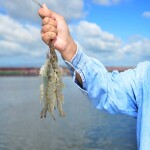Seán O’Donoghue, chief executive of the Killybegs Fishermen’s Organisation (KFO), has welcomed the latest Brexit declaration as having achieved specific acknowledgment and reference to the crucial issue of the linkage between access and quotas to the wider trade issue.
Responding to the 36-page draft text, which is part of a package alongside the legal treaty on Britain's withdrawal from the European Union, O’Donoghue said that he had always maintained that the key to a successful fisheries outcome would be linking access and quota share to the wider trade negotiations.
Paragraph 75 of the text states: “Within the context of the overall economic partnership the parties should establish a new fisheries agreement on, inter alia, access to waters and quota shares.”
A new E.U.-U.K. agreement on fisheries would form part of the overall new relationship between the two. The sides aim to conclude and ratify their new fisheries agreement by 1 July, 2020.
Building on the momentum of last week’s publication of the draft withdrawal agreement and outline political declaration, the KFO believes that the Irish fishing industry is relatively well-placed to avoid a “disastrous hard Brexit.”
“While we are quite encouraged by the documents we have seen to date, I said last week that strong foundations have now been laid, we cannot afford to take our eye off the ball. We’ve begun well but we’re not even at half-time yet. We know only too well from experience that fisheries negotiations are multi-faceted and highly complex and much remains to be agreed," O’Donoghue said. “We firmly believe that the future framework for fisheries, after the transition period, needs to maintain the current levels of reciprocal access to waters and markets, as well as sound science-based fisheries management. The text presented to date takes the first steps to deliver on this and we look forward to productive negotiations in the near future.”
Ireland’s two biggest fisheries, mackerel (60 percent) and nephrops (40 percent), are hugely dependent on access to U.K. waters with the overall dependency for all stocks of over 30 percent. Therefore, maintaining reciprocal access to waters and resources “need to be at the heart of the post-Brexit relationship in fisheries,” given the historic ties and inextricable links between the countries and industries, O’Donoghue said.
The latest political declaration setting out the framework for the future relationship between the E.U. and the United Kingdom sets out the following with regard to fisheries:
XII. FISHING OPPORTUNITIES
- 73. The parties should cooperate bilaterally and internationally to ensure fishing at sustainable levels, promote resource conservation, and foster a clean, healthy and productive marine environment, noting that the United Kingdom will be an independent coastal state.
- 74. While preserving regulatory autonomy, the parties should cooperate on the development of measures for the conservation, rational management and regulation of fisheries, in a non-discriminatory manner. They will work closely with other coastal states and in international fora, including to manage shared stocks.
- 75. Within the context of the overall economic partnership the parties should establish a new fisheries agreement on, inter alia, access to waters and quota shares.
- 76. The parties will use their best endeavors to conclude and ratify their new fisheries agreement by 1 July 2020 in order for it to be in place in time to be used for determining fishing opportunities for the first year after the transition period.






